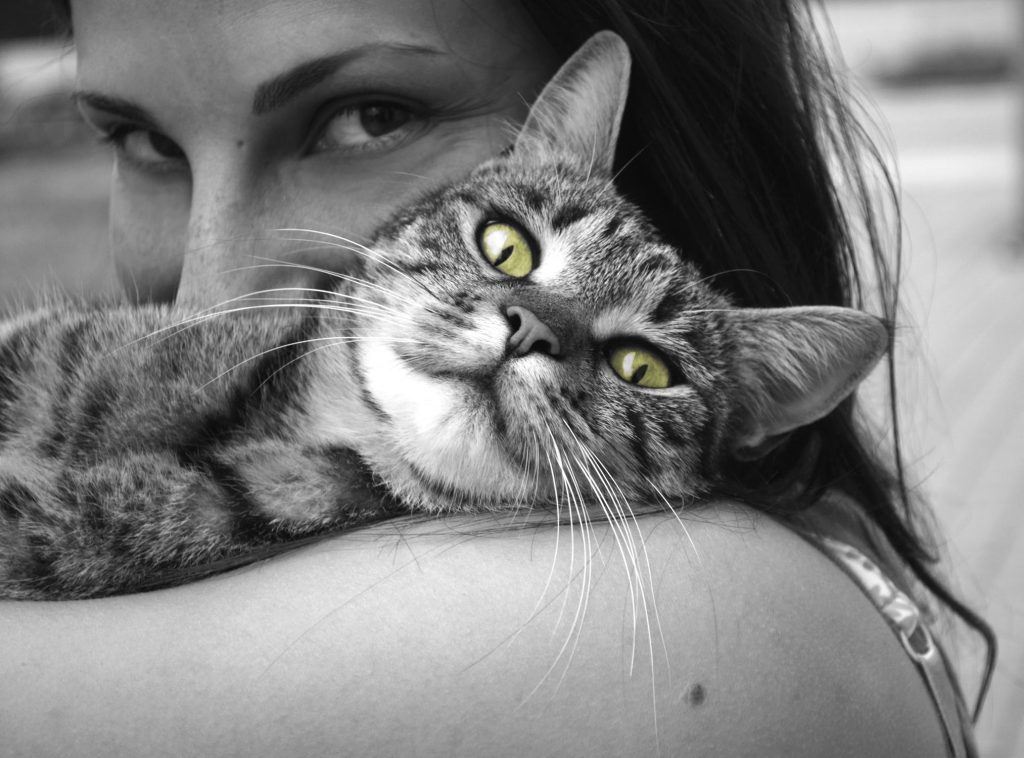

You’ve just moved away from home and decide to adopt.
Your parents had a puppy where you lived, but your new apartment complex doesn’t allow dogs. On the other hand, perhaps you’ve always wanted a kitty, but your sister was allergic. Whatever the case, you’ve made up your mind to adopt your first cat, and want to be sure you’re doing everything right. Here are some things to consider before bringing Mrs. Whiskers to her first apartment:
Are You Paws-itive?
Consider how much time you will be able to spend with your pet. Cats are relatively independent, but still incapable of surviving indoors without a certain amount of care. They are affectionate animals that need at least 15 minutes of attention per day.
Make sure your roommates are okay with your new friend. Some people do not care for the animal, and 1 in 7 are allergic.
Finding Your Feline
Try to avoid the pet store or breeder if you can. There are plenty of sweet kitties waiting for a home in shelters where they will be euthanized if they stay for too long.
When deciding which cat is best for you, keep in mind factors such as age and breed. Kittens and senior cats generally require more attention and medical care, and long-haired cats will need to be groomed more regularly.
Healthcare
Always always always spay and neuter your pets. Even indoor animals can escape, and unfixed male cats pee on everything. Make sure you take them to see a vet as soon as you can so they will be caught up on shots and checked for diseases/parasites. Very young kittens can’t get all their shots right away, so keep in mind that you may have to make a second trip in a few months.
Consider investing in pet insurance or a veterinary health care plan – especially if your cat has special needs. You never know when something might happen, and it’s best to be safe.
Claws

Buy scratching toys to keep your cat from tearing up the furniture. Cats will scratch for many reasons: to mark territory, to relieve the itchy parts around their claws, or to latch on to something while they stretch. You can’t expect your cat to refrain from scratching on something. You can train your cat to use the scratching post (and not the couch) by lightly garnishing it with catnip.
Even with the proper amenities, still make sure you trim your kitty’s nails regularly. Their claws can snag on furniture when they jump and injure others in play fights.
Playtime
Cats require a certain amount of stimulation. Make sure your kitty has enough toys, or it may displace its energy onto your shoes, furniture, or glassware.
Fashion Faux Paw
Unlike dogs, most cats are not okay with being dressed. Mrs. Whiskers knows she is au naturale fabulous, so just say no to the kitty kimono.
Chow Time
Cats should be fed 1-2 times per day. Read the labels on your cat food to know how much is in a serving. Don’t overfeed her! Overweight cats are uncomfortable and have more health issues. When it comes to food, not all brands are equal. Find a good brand that will support healthy living, and NEVER feed your cat dog food.
Litter Bug
Plus-side to owning a cat – they don’t need to go for walks. Downside to owning a cat – they make #2 indoors. Keep your kitty’s litter box clean for her sake, yours, your roommates’, and for visitors. Nobody likes that smell.
Litter should be changed 2-3 times per week, and you’ll want to use clumping litter since it is easier to maintain. Self-cleaning boxes can get expensive, but are ideal for a busier lifestyle. For a more discreet/stylish look, consider hidden litter boxes, which double as houseplants or pieces of furniture.
Whatever you decide, try to ensure that the box is covered for privacy and added odor control, and that it is out of the common space. Throw in a litter box mat for good measure; it will keep her from tracking litter around the apartment.
Most importantly, recognize that if you aren’t able to properly care for your cat, you shouldn’t get one. It won’t be fair to her, and a return trip to the pound is extremely uncool.






 Equal Housing Opportunity
Equal Housing Opportunity

